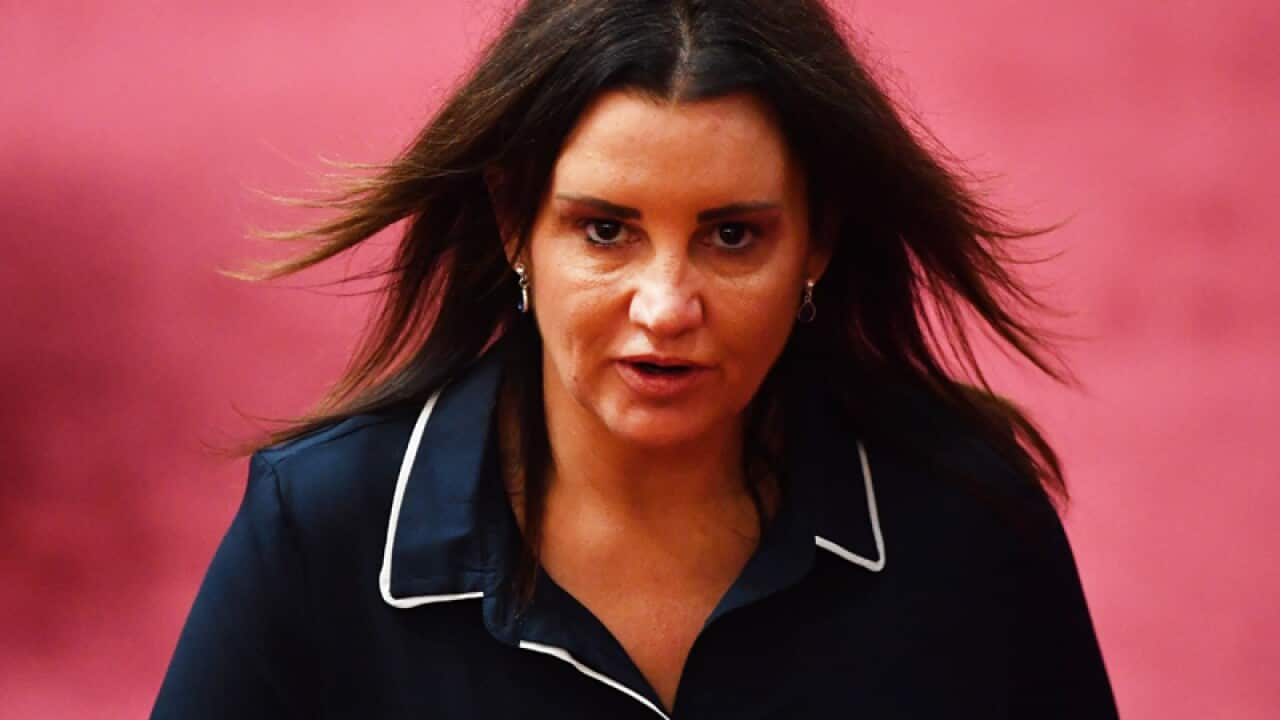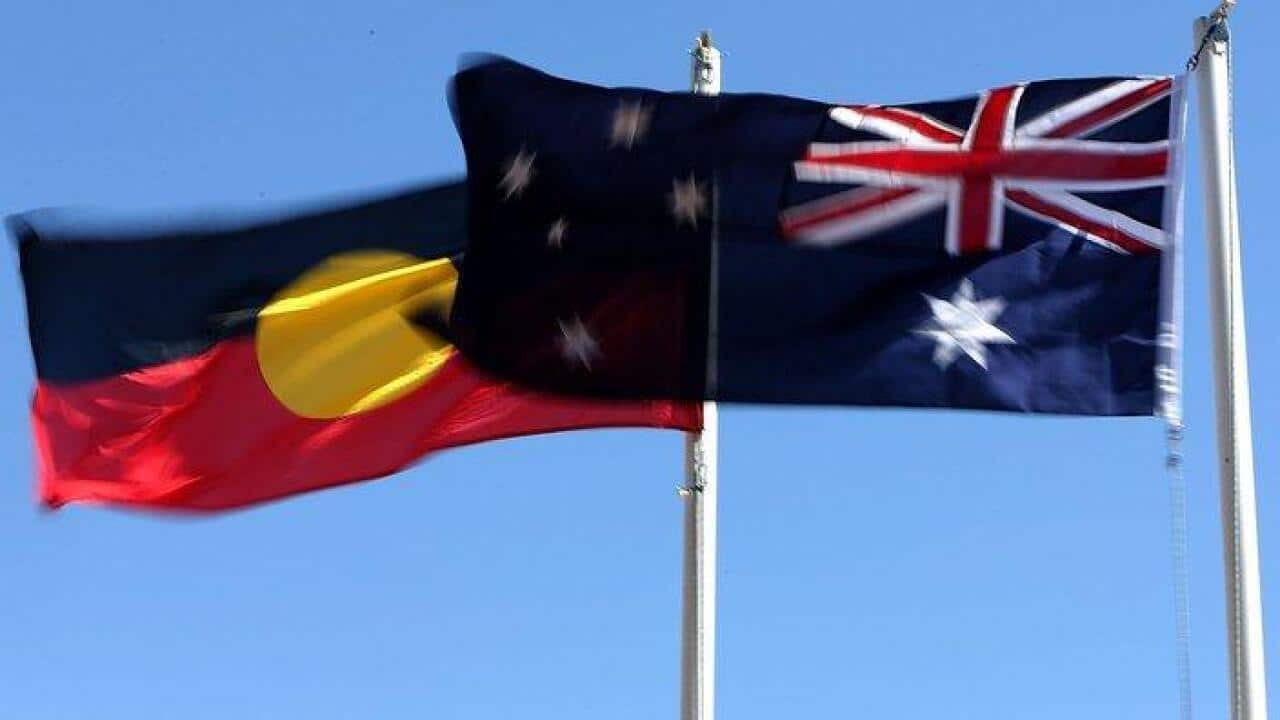The audience sat in the room mesmerized, as Lynda, Amelia, Natalie and Lidia took the stage at the Redfern Community Centre. The four eloquent women were there for the ‘Young Women Speak out for Treaty’ forum, organized by the Stop the Intervention Collective Sydney.
Their speeches wove emotional personal stories with those of their families, offering a backdrop to their powerful, yet softly-spoken arguments about why they believe a treaty would benefit Australia’s First Nations peoples, more so than constitutional recognition.
Educator and Fighting in Solidarity Toward Treaties (FISTT) Representative, Lynda-June Coe, opened the forum stating that to her, a treaty is the way forward.
“A treaty for me represents freedom. This country cannot call itself an equal society that is just, if its First Nations still have those colonial chains,” she said.
“This is our country, and we have never ceded sovereignty.”
Lynda told NITV News she believes the treaty movement has gained momentum.
“There is resurgence on the ground, especially with constitutional reform and Recognise. Hearing from younger people is essential if we’re ever going to have representation of the younger community.” But, despite the buzz in Indigenous circles, Lynda told the audience she believes the government isn’t ready for a treaty with First Nations people.
But, despite the buzz in Indigenous circles, Lynda told the audience she believes the government isn’t ready for a treaty with First Nations people.

Educator and Fighting in Solidarity Toward Treaties (FISTT) Representative, Lynda-June Coe. Source: NITV News
“With its push on constitutional reform, it only wants to control the grassroots voice,” she said.
For Lynda, the government’s attempt to water-down section 18C of the Racial Discrimination Act (RDA) on Harmony Day was further proof of its unwillingness to cease control over the lives of Aboriginal and Torres Strait Islander Peoples.
“What a joke! To have him [Turnbull] have this debacle on the RDA, but then to rule in native title right underneath our noses. Inflict that to us and then give rights to miners.
“That, there, has been the practice in this country for 247 years. Let’s bombard the natives with racism. Let’s bombard them with hate, with prejudice, and then take their land while they’re too busy trying to survive,” she said.
MORE ON THE 18C DEBATE

Indigenous leaders slam Government's announcement to water down race hate laws
Amelia Pangarte Kunoth-Monks, an Eastern Arrernte woman who travelled all the way from Utopia, a remote community in the Northern Territory, told NITV News that to her, a treaty is more important than constitutional recognition.
“I don’t want to be put in a foreign Constitution, I don’t understand it.”
Amelia, who comes from a long line of activist matriarchs, told NITV News she came to Sydney following her grandmother’s footsteps.
“She talks about Treaty and how we are not the problem. We’ve been put under so much distress that our poverty has become a commodity for the white ‘democrats’ that put these policies on us,” she said. From colonialism to land rights, from deaths in custody, to Recognise, and the North Dakota Pipeline, no topic or point of view was spared during the panel discussion.
From colonialism to land rights, from deaths in custody, to Recognise, and the North Dakota Pipeline, no topic or point of view was spared during the panel discussion.

Amelia Pangarte Kunoth-Monks Source: NITV News
Gunnai and Gunditjmara woman, Lidia Thorpe, focused her speech on the Treaty conversations being held in Victoria. She said they’re looking at models overseas to understand best what would work in Australia.
“There are so many flaws with all the treaties around the world… As I said before, we’ve got to learn from those,” she said.
“We need a bill of rights … The dream of land rights isn’t real, but Treaty is real,” she added.
For Lidia, a Treaty would mean an opportunity for a new start.
“We could re-write the Constitution. The Constitution is a British construct to protect convicts that came here. So, I think a Treaty is something that we can re-write together, that brings all of us, peace and harmony in this country and that we can all benefit from.”  Gamileraay woman, Natalie Cromb, told NITV News she was especially interested in discussions around setting a framework for Treaty that would work from a legal perspective.
Gamileraay woman, Natalie Cromb, told NITV News she was especially interested in discussions around setting a framework for Treaty that would work from a legal perspective.

Lidia Thorpe has been involved in the Victoria Treaty conversations. Source: NITV News
“You have almost 229 years of colonization, so Treaty is the insurance policy, because we have an amount of history that proves the government is not going to put the Indigenous interests at the forefront of Indigenous policy.
“We’ve had 12 years of no national representative body that has teeth or legislative power, so we’ve been at the mercy of bipartisan policy which won’t work for us.”
Natalie explained that, to move forward, First Nations Peoples need to safeguard their rights within the current judiciary and legislative systems imposed by government, as she believes they will attempt to breach the Treaty, once it is settled.
“[We need] some 'flesh on the bones' type of thinking, to make sure we have the legislative teeth that we want to ensure a Treaty is enforced and that we have our rights,” she added.
“A Treaty won’t heal the country, but it will provide protection… What will heal is a change of consciousness of white people,” she explained. Natalie also pointed out that the government has been using financial excuses to exempt themselves from the discussion.
Natalie also pointed out that the government has been using financial excuses to exempt themselves from the discussion.

Natalie Cromb interested in the legalities of Treaty and how to offer real protections for First Nations Australians. Source: NITV News
“The thing that I’m most concerned with is the resistance to Treaty and the constant rhetoric of, ‘but that’s going to cost money to set up’. ‘How are we going to set that up? Where’s the money going to come from?’ Well, the money is going to come from the rent that’s due!,” she said.
All the women panelists agreed with the fact that Treaty needs to come from the grassroots, and it has to be inclusive to get it right.
“We don’t need to rush this … Everyone has to have their say and it has to suit every nation in this country,” Natalie said.
Amelia spoke about the importance of overcoming current divisions amongst different Indigenous groups.
“I think we need to gather as First Nations People, and be together as one. We need to unite."
And for Lynda and Lidia, the key also lies in gaining support from across the board.
“For the non-Aboriginal people in the audience, I would like for them to walk away with a sense of belonging; [to] walk with us.
“This is actually your fight as well. This is our country; this is a country that should be united under one banner. And we need justice for our people, and every other minority group to feel welcome in this country as well,” Linda said.
The women said they look forward to further Treaty discussions during the Indigenous-led Referendum Council meetings to be held in Uluru in May.









